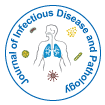The COVID-19 Pandemic: A Call to Action
Editor assigned: 01-Jan-1970 / Reviewed: 01-Jan-1970 / Revised: 01-Jan-1970 /
Abstract
The Covid-19 pandemic is having a dramatic impact on the world’s population. Currently, there are more than half a million new cases per day and there are more than 10, 000 daily deaths. The effects of this pandemic far outweigh the direct consequences of the disease. In several industrialized countries there is an excess of all-cause mortality, not only due to deaths due to COVID-19, but due to an excess of mortality due to other causes. The lock-down of health systems, focused on patient care in COVID-19, seems to be the most plausible explanation for the non-COVID-19 excess of mortality. On the other hand, the measures adopted by governments to combat the pandemic have led to the shutdown of society and the economy, leading to brutal falls in GDP.
Keywords
Introduction
The effects of this economic crisis affect all social groups but are more intense among the poorest and disadvantaged. People of all ages may be infected with SARS-CoV-2, but older people, and people with pre-existing medical conditions appear to be more vulnerable to becoming seriously ill with the virus. Several articles have shown that poverty, deprivation, population density, proportion of elderly residents, use of public transport, household size and ethnicity are associated with higher incidence of COVID-19. All these characteristics are more common in urban areas where the poorest people in industrialised societies and in the poorest countries live. Improving physical activity, cardiorespiratory fitness, and blood pressure [1].
Description
To date, apart from dexamethasone, no drug has been shown as effective in the treatment of COVID-19 in large clinical trials. The new vaccines are expected to be effective in the real world. Their efficacy in disease prevention and their safety seem to be demonstrated. However, it is not yet clear whether they induce lasting immunity or protect against viral infection [2].
The industrialised countries of Europe and North America have acquired a quantity of vaccines that far exceeds the needs of their populations, while developing countries struggle to gain access to vaccines and fail to ensure adequate population coverage to achieve herd immunity. In addition, vaccination programmes require extraordinary logistical conditions and vaccines will be made available in stages. These programmes will therefore take several months to complete. Thus, the fight against the pandemic will continue for a long time to come [3]. The weakest, the most disadvantaged, the elderly, the sickest, those who live in countries with fewer resources should be permanently in the minds and day-to-day concerns of health authorities. Protecting them is also protecting all the others and protecting societies.
In the face of ever-increasing death tolls, the health authorities urgently need to take tough decisions. These decisions range from the definition of priority vaccination groups (an ethical challenge of great complexity) to the elaboration of recommendations in a scientific environment of great uncertainty and some crispness [4]. The decision-making process cannot follow the usual paradigms of non-pandemic times. In these times of pandemic, health authorities and drug regulatory agencies have an obligation to gain flexibility and to abandon their passive attitude. They must proceed to audit and analyse an overall survey of the available data (from multiple therapeutic trials already available and published) and, based on this process, they must decide. These decisions will be necessarily based on some degree of uncertainty [5]. But, if they lead to the approval of drugs for early home treatment or chemoprophylaxis, they may save many lives. In rich countries, vaccines might be a light at the end of a tunnel that will take a few months to cross. However, the poorest countries have not even entered the same tunnel yet.
References
Share This Article
Recommended Journals
天美传媒 Access Journals
Article Usage
- Total views: 1479
- [From(publication date): 0-2021 - Jan 10, 2025]
- Breakdown by view type
- HTML page views: 1056
- PDF downloads: 423
